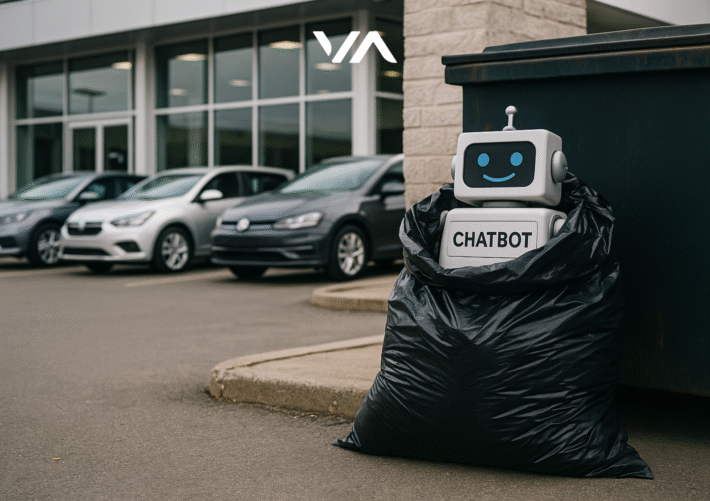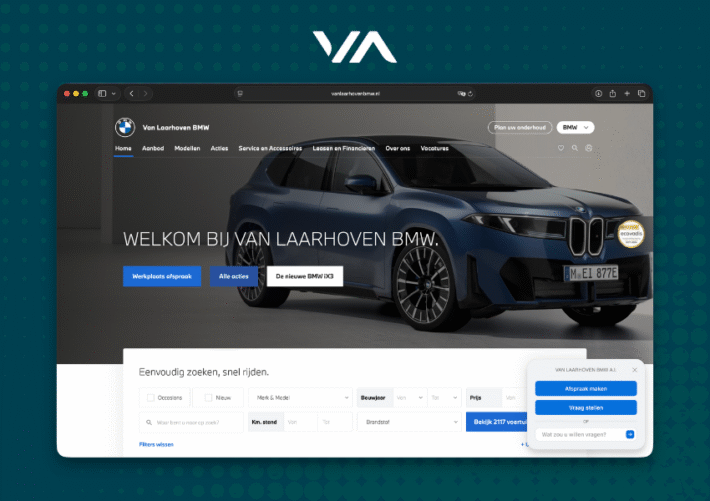Will AI Become the Best Car Sales Advisor?

Translating BCG’s Vision into Automotive Retail Reality
On 18 September 2025, Boston Consulting Group (BCG) asked a provocative question: “Will AI become the best car sales advisor?” Their conclusion was clear: yes.
AI can outperform humans in some crucial aspects of the sales process: it is available 24/7, it is unbiased, and it learns from every single interaction. For an industry like automotive retail — characterised by high-value, complex decisions and notoriously high customer expectations — the implications are enormous.
But here is the paradox: while the vision is compelling, most companies are still struggling with reality. BCG’s own research reveals that only 26% of businesses manage to take AI projects beyond the proof-of-concept stage. The technology exists, the potential is obvious, but adoption falters because companies fail to rewire their processes, culture, and people.
This is where automotive retail faces its wake-up call. And it is also where pioneering dealer groups are already moving faster than most of the industry realises.
From vision to reality: what BCG really means for automotive
BCG’s article is not just about sales. It points to a broader transformation: the shift from transactional customer interactions to conversational journeys.
For decades, dealer websites have been built around navigation: menus, forms, planners. Yet customers are no longer patient navigators. They expect instant conversations: answers on WhatsApp, callbacks turned into live resolutions, and personalised guidance throughout their journey.
This is what we at Novaco call Web4.0 – The Conversational Web.
-
For customers, it means no more navigating outdated planners or waiting for callbacks.
-
For employees, it means less time wasted on admin and more time for real conversations.
-
For dealers, it means higher utilisation of workshops, reduced inbound calls, and improved customer satisfaction.
BCG’s warning is sharp: technology alone does not deliver this shift. Adoption does. Companies that fail to change their people and processes will remain stuck in pilots, while those who adapt will reshape their industry.
Where automotive retail is stuck today
The daily reality in many dealerships illustrates the gap between ambition and execution:
-
Workshop planners: still the pride of most websites, but often ignored by customers. Research and practice show that three out of four customers still prefer to call. And even when planners are used, they rarely fill workshop capacity completely.
-
Contact centres: drowning in demand. In many cases, over 80% of inbound calls end in a callback request. That is not customer service — it is delay dressed as process.
-
Employees: overloaded with admin tasks that generate no value — updating statuses, chasing confirmations, pushing paper. Their skills are wasted on bureaucracy instead of conversations that build loyalty and revenue.
The result? Rising costs, declining margins, and frustrated customers.
BCG argues that AI has the potential to reverse this dynamic, turning every interaction into an opportunity to build trust and deliver value. But that only happens when AI becomes an integrated part of the customer journey — not an isolated experiment.
The pioneers proving it works
Fortunately, this is not theory. Across Europe, leading dealer groups are already applying conversational AI in practice — and the results are striking.
-
Customers are booking service appointments directly via conversational channels like WhatsApp, cutting phone traffic dramatically.
-
Service utilisation is increasing because conversational interfaces fill gaps that static planners leave behind.
-
Call volumes at contact centres are reduced, while customer satisfaction improves thanks to instant answers instead of callbacks.
-
Employees report that they can spend more time in meaningful conversations, while AI handles repetitive admin.
The impact is clear: fewer calls, higher efficiency, better utilisation, and happier customers.
These examples show that conversational AI is not a futuristic promise — it is a proven advantage already reshaping the industry.
Why this is the wake-up call
Automotive retail faces relentless structural pressure:
-
Margins on car sales are shrinking.
-
Electric vehicles require less service, reducing aftersales revenue.
-
Chinese entrants bring aggressive competition with digital-first strategies.
-
Non-billable hours in workshops are rising, eroding profitability.
Against this backdrop, dealers cannot afford to treat AI as an experiment. As BCG makes clear, AI has the potential to become the best advisor in automotive retail — but only if companies move beyond pilots and integrate it deeply into the way they operate.
The message is blunt: adding more people is not sustainable. Adding more tools is not enough. The only viable path is to transform the customer interface into a conversation.
Web4.0 – The Conversational Web
At Novaco, we describe this transformation as Web4.0 – The Conversational Web. It is not a new gadget but a new foundation: conversations as the default interface between dealers and customers.
-
On the website, static planners give way to live dialogues.
-
On WhatsApp, customers receive confirmations instantly, not “we’ll call you back.”
-
On the phone, voice AI ensures that even traditional channels become conversational.
-
For employees, repetitive admin is automated so they can focus on human-to-human interactions.
The technology is here. The proof of concept exists. Website builders like Powerkraut and Datamotive are already applying conversational design to dealer websites. And leading dealer groups are showing what is possible when adoption is taken seriously.
The industry is moving. The only question is: who will be next?
Conclusion – Translating BCG’s vision into action
BCG’s question — “Will AI become the best car sales advisor?” is not hypothetical. The answer is unfolding in front of us.
AI will not replace the human salesperson, but it will reshape the customer journey so profoundly that dealers who ignore it will be left behind. Conversations, not forms, will define the next era of automotive retail.
For those who are ready, the blueprint is already visible:
-
Learn from the pioneers.
-
Align people and processes with technology.
-
Move fast, because customers are not waiting.
Web4.0 — The Conversational Web — is the wake-up call. The future is already here.




